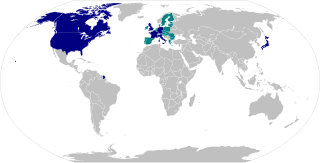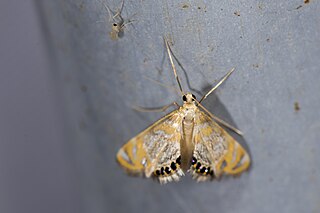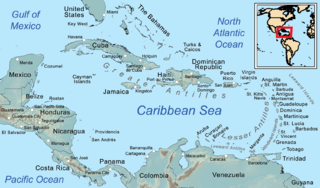Globalization or globalisation is the process of interaction and integration among people, companies, and governments worldwide. As a complex and multifaceted phenomenon, globalization is considered by some as a form of capitalist expansion which entails the integration of local and national economies into a global, unregulated market economy. Globalization has grown due to advances in transportation and communication technology. With the increased global interactions comes the growth of international trade, ideas, and culture. Globalization is primarily an economic process of interaction and integration that's associated with social and cultural aspects. However, conflicts and diplomacy are also large parts of the history of globalization, and modern globalization.

Climate change occurs when changes in Earth's climate system result in new weather patterns that last for at least a few decades, and maybe for millions of years. The climate system is comprised of five interacting parts, the atmosphere (air), hydrosphere (water), cryosphere, biosphere, and lithosphere. The climate system receives nearly all of its energy from the sun, with a relatively tiny amount from earth's interior. The climate system also gives off energy to outer space. The balance of incoming and outgoing energy, and the passage of the energy through the climate system, determines Earth's energy budget. When the incoming energy is greater than the outgoing energy, earth's energy budget is positive and the climate system is warming. If more energy goes out, the energy budget is negative and earth experiences cooling.

The G8, reformatted as G7 from 2014 due to the suspension of Russia's participation, was an inter-governmental political forum from 1997 until 2014.
A global city, also called world city or sometimes alpha city or world center, is a city which is a primary node in the global economic network. The concept comes from geography and urban studies, and the idea that globalization is created, facilitated, and enacted in strategic geographic locales according to a hierarchy of importance to the operation of the global system of finance and trade.

The Group of Seven (G7) is a group consisting of Canada, France, Germany, Italy, Japan, the United Kingdom, and the United States. These countries, with the seven largest IMF-described advanced economies in the world, represent 58% of the global net wealth ($317 trillion). The G7 countries also represent more than 46% of the global gross domestic product (GDP) based on nominal values, and more than 32% of the global GDP based on purchasing power parity. The European Union is also represented at the G7 summit.

The NatureServe conservation status system, maintained and presented by NatureServe in cooperation with the Natural Heritage Network, was developed in the United States in the 1980s by The Nature Conservancy (TNC) as a means for ranking or categorizing the relative imperilment of species of plants, animals, or other organisms, as well as natural ecological communities, on the global, national and/or subnational levels. These designations are also referred to as NatureServe ranks, NatureServe statuses, or Natural Heritage ranks. While the Nature Conservancy is no longer substantially involved in the maintenance of these ranks, the name TNC ranks is still sometimes encountered for them.

The G20 is an international forum for the governments and central bank governors from 19 countries and the European Union. Founded in 1999 with the aim to discuss policy pertaining to the promotion of international financial stability, the G20 has expanded its agenda since 2008 and heads of government or heads of state, as well as finance ministers and foreign ministers, have periodically conferred at summits ever since. It seeks to address issues that go beyond the responsibilities of any one organization.

Global warming is a long-term rise in the average temperature of the Earth's climate system, an aspect of climate change shown by temperature measurements and by multiple effects of the warming. Though earlier geological periods also experienced episodes of warming, the term commonly refers to the observed and continuing increase in average air and ocean temperatures since 1900 caused mainly by emissions of greenhouse gasses in the modern industrial economy. In the modern context the terms global warming and climate change are commonly used interchangeably, but climate change includes both global warming and its effects, such as changes to precipitation and impacts that differ by region. Many of the observed warming changes since the 1950s are unprecedented in the instrumental temperature record, and in historical and paleoclimate proxy records of climate change over thousands to millions of years.

Cymbalomia is a genus of moths of the family Crambidae.
Erupa is a genus of moths of the family Crambidae.

Nymphicula is a genus of moths of the family Crambidae.
Pilocrocis is a genus of moths of the family Crambidae. The genus was first erected by Julius Lederer in 1863.

5G is the latest generation of cellular mobile communications. It succeeds the 4G, 3G and 2G (GSM) systems. 5G performance targets high data rate, reduced latency, energy saving, cost reduction, higher system capacity, and massive device connectivity. The first phase of 5G specifications in Release-15 scheduled to complete by April 2019 is to accommodate the early commercial deployment. The second phase in Release-16 is due to be completed by April 2020 for submission to the International Telecommunication Union (ITU) as a candidate for IMT-2020 technology.

Stericta is a genus of snout moths. It was described by Julius Lederer in 1863.
Nymphicula lactealis is a moth in the family Crambidae. It was described by David John Lawrence Agassiz in 2014. It is found in New Caledonia east of Australia.
Erupa lactealis is a moth in the family Crambidae. It was described by George Hampson in 1896. It is found in Rio de Janeiro, Brazil.
Cybalomia lactealis is a moth in the family Crambidae. It is found in Algeria.
Goniophysetis lactealis is a moth in the family Crambidae. It is found in Kenya.
Patissa lactealis is a moth in the family Crambidae. It was described by Cajetan Felder, Rudolf Felder and Alois Friedrich Rogenhofer in 1875. It is found in Sri Lanka.
Pilocrocis lactealis is a moth in the family Crambidae. It was described by George Hampson in 1912. It is found in Brazil.










